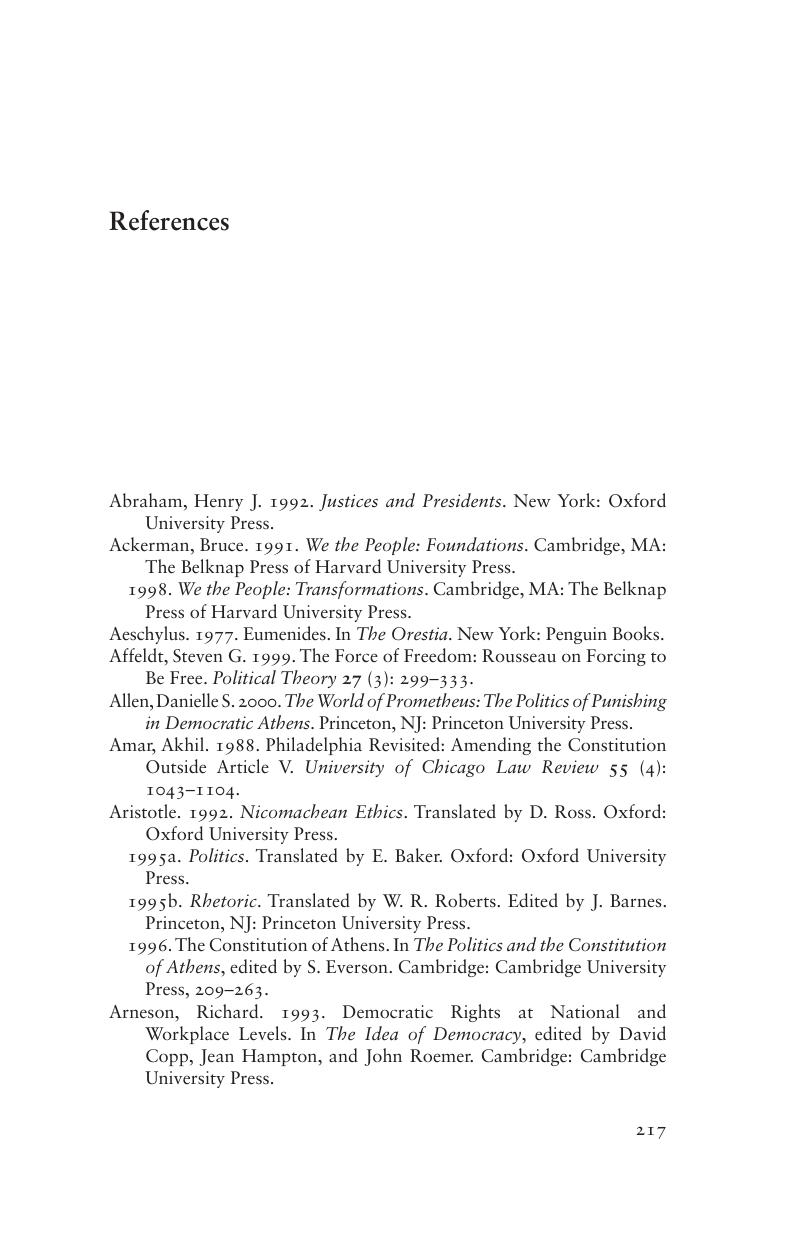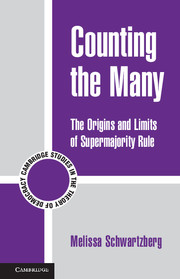References
Published online by Cambridge University Press: 05 June 2014
Summary

- Type
- Chapter
- Information
- Counting the ManyThe Origins and Limits of Supermajority Rule, pp. 217 - 230Publisher: Cambridge University PressPrint publication year: 2013

